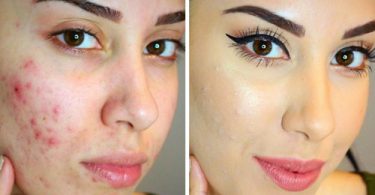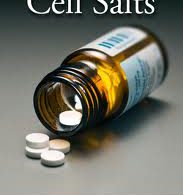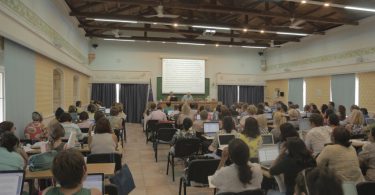Abstract – Anxiety is a normal reaction to stress and can be beneficial in some situations. It can alert us to dangers and help us prepare and pay attention. Anxiety disorders differ from normal feelings of nervousness or anxiousness, and involve excessive fear or anxiety. Anxiety disorders are the most common of mental disorders and affect nearly 30 percent of adults at some point in their lives.1
key words – Generalized Anxiety Disorder , Anxiety disorder symptoms , Agoraphobia, Anxiety disorder due to a medical condition , Panic disorder , Selective mutism , Separation anxiety disorder , Social anxiety disorder , Specific phobias , Substance-induced anxiety disorder , Other specified anxiety disorder and unspecified anxiety disorder, risk factor, prevention, homoeopathic treatment for Anxiety disorder.
Definition – Anxiety disorders group of mental disorders characterized by feelings of anxiety and fear involve repeated episodes of sudden feelings of intense anxiety and fear or terror that reach a peak within minutes, symptoms can range from mild to severe. The period of symptoms generally experienced by people with anxiety disorders makes it more a chronic than episodic disorder.
Introduction – Worldwide an estimated 284 million people experienced an anxiety disorder in 2017, making it the most prevalent mental health or neurodevelopmental disorder. Around 63 percent (179 million) were female, 105 million males. In India estimated 44•9 million (41•2–48•9) with anxiety disorders in Dec 20, 2019. 2
Etiology –
Signs and Symptoms
Generalized Anxiety Disorder –
People with generalized anxiety disorder (GAD) display excessive anxiety or worry, most days for at least 6 months, about a number of things such as personal health, work, social interactions, and everyday routine life circumstances. The fear and anxiety can cause significant problems in areas of their life, such as social interactions, school, and work.
Anxiety disorder symptoms –
• Feeling nervous, restless or tense
• Having a sense of impending danger, panic
• Having an increased heart rate
• Breathing rapidly (hyperventilation)
• Sweating
• Trembling
• Feeling weak or tired
• Trouble concentrating or thinking about anything other than the present worry
• Having trouble sleeping
• Experiencing gastrointestinal (GI) problems
• Having difficulty controlling worry
• Having the urge to avoid things that trigger anxiety 3
Types of anxiety disorders:
Agoraphobia – Agoraphobia is a type of anxiety disorder in which you fear and often avoid places or situations that might cause you to panic and make you feel trapped, helpless or embarrassed.
Agoraphobia is the fear of being in situations where escape may be difficult or embarrassing, or help might not be available in the event of panic symptoms. The fear is out of proportion to the actual situation and lasts generally six months or more and causes problems in functioning. A person with agoraphobia experiences this fear in two or more of the following situations:
Using public transportation
Being in open spaces
Being in enclosed places
Standing in line or being in a crowd
Being outside the home alone
The individual actively avoids the situation, requires a companion or endures with intense fear or anxiety. Untreated agoraphobia can become so serious that a person may be unable to leave the house. A person can only be diagnosed with agoraphobia if the fear is intensely upsetting, or if it significantly interferes with normal daily activities. 1
Anxiety disorder due to a medical condition – it includes symptoms of intense anxiety or panic that are directly caused by a physical health problem.
Generalized anxiety disorder – Generalized anxiety disorder involves persistent and excessive worry that interferes with daily activities. This ongoing worry and tension may be accompanied by physical symptoms, such as restlessness, feeling on edge or easily fatigued, difficulty concentrating, muscle tension or problems sleeping. Often the worries focus on everyday things such as job responsibilities, family health or minor matters such as chores, car repairs, or appointments.
Panic disorder – The core symptom of panic disorder is recurrent panic attacks, an overwhelming combination of physical and psychological distress. During an attack several of these symptoms occur in combination:
• Palpitations, pounding heart or rapid heart rate
• Sweating
• Trembling or shaking
• Feeling of shortness of breath or smothering sensations
• Chest pain
• Feeling dizzy, light-headed or faint
• Feeling of choking
• Numbness or tingling
• Chills or hot flashes
• Nausea or abdominal pains
• Feeling detached
• Fear of losing control
• Fear of dying
Because symptoms are so severe, many people who experience a panic attack may believe they are having a heart attack or other life-threatening illness and may go to a hospital ER. Panic attacks may be expected, such as a response to a feared object, or unexpected, apparently occurring for no reason. The mean age for onset of panic disorder is 22-23. Panic attacks may occur with other mental disorders such as depression or PTSD. 1
Selective mutism – Selective mutism is a consistent failure of children to speak in certain situations, such as school, even when they can speak in other situations, such as at home with close family members. This can interfere with school, work and social functioning.
Separation anxiety disorder – A person with separation anxiety disorder is excessively fearful or anxious about separation from those with whom he or she is attached. The feeling is beyond what is appropriate for the person’s age, persists and causes problems functioning. A person with separation anxiety disorder may be persistently worried about losing the person closest to him or her, may be refuse to go out or sleep away from home or without that person, or may experience nightmares about separation. Physical symptoms of distress often develop in childhood, but symptoms can carry though adulthood. 1
Social anxiety disorder – A person with social anxiety disorder has significant anxiety and discomfort about being embarrassed, humiliated, rejected or looked down on in social interactions. People with this disorder will try to avoid the situation or endure it with great anxiety. Common examples are extreme fear of public speaking, meeting new people or eating/drinking in public. The fear or anxiety causes problems with daily functioning and lasts at least six months. 1
Specific phobias – A specific phobia is excessive and persistent fear of a specific object, situation or activity that is generally not harmful. Patients know their fear is excessive, but they can’t overcome it. These fears cause such distress that some people go to extreme lengths to avoid what they fear. Examples are fear of flying or fear of spiders.. 1
Substance-induced anxiety disorder – Substance-induced anxiety disorder is characterized by symptoms of intense anxiety or panic that are a direct result of misusing drugs, taking medications, being exposed to a toxic substance or withdrawal from drugs.
Other specified anxiety disorder and unspecified anxiety disorder – are terms for anxiety or phobias that don’t meet the exact criteria for any other anxiety disorders but are significant enough to be distressing and disruptive. 4
Risk Factors –
Researchers are finding that both genetic and environmental factors contribute to the risk of developing an anxiety disorder. Although the risk factors for each type of anxiety disorder can vary, some general risk factors for all types of anxiety disorders include:
Temperamental traits of shyness or behavioral inhibition in childhood
Exposure to stressful and negative life or environmental events in early childhood or adulthood
A history of anxiety or other mental illnesses in biological relatives
Some physical health conditions, such as thyroid problems or heart arrhythmias, or caffeine or other substances/medications, can produce or aggravate anxiety symptoms; a physical health examination is helpful in the evaluation of a possible anxiety disorder. 5
Prevention –
There’s no way to predict for certain what will cause someone to develop an anxiety disorder, but you can take steps to reduce the impact of symptoms if you’re anxious: Get help early. Anxiety, like many other mental health conditions, can be harder to treat if you wait. Stay active. Participate in activities that you enjoy and that make you feel good about yourself. Enjoy social interaction and caring relationships, which can lessen your worries. Avoid alcohol or drug use. Alcohol and drug use can cause or worsen anxiety. If you’re addicted to any of these substances, quitting can make you anxious. If you can’t quit on your own, see your doctor or find a support group to help you. 4
Homoeopathic Treatment For Anxiety Neurosis –
Homeopathy is very effective for treatment of different types of anxiety disorders. The homeopathic prescription for anxiety neurosis is based on the principle of individualization.
Aconitum Napellus – Aconite is a very useful Homeopathic remedy for Generalized Anxiety Disorder aconite persons are having fear of death and are very restlessness. There is anxiety of crowded places and while crossing the streets. Acute, sudden and violent attacks of tension, with a marked fear of death and when outside makes the patient feel better. Increased thirst for big quantities of cold water during the attack could be a vital pointer towards the utilization of Homeopathic medicine aconitum napellus. Homeopathic medicine. Anxiety attack that comes on suddenly with very strong fear of death may indicate this remedy. A state of immense anxiety could also be accompanied by strong palpitations, shortness of breath, and flushing of the face. Sometimes a shaking experience are going to be the underlying cause.
Argentum nitricum- Argentricum nitricum is very good remedy for anxiety disorder. It indicated for person who is having apprehension or stage fright accompanied by agitation and a feeling of hurriedness. person gets anxious while preparing for a few engagement or before travel. The anxiety disappears as soon as the person reaches the engagement venue or sits within the car. person is accompanied by the most troublesome fear and diarrhea. Excessive irritability, nervousness and impulsiveness. person walk very fast and continuously till fatigue sets in. Person of Generalized Anxiety Disorder with symptoms of impulse to jump impulsiveness like the out while travelling in a train, or while crossing a bridge or high.
Arsenicum Album – Arsenicum Album is very good remedy for anxiety disorder there is fears death and restless. It is useful for patients who refuse to take the medicine because of the thought that death is near and there is no use of taking medicine. Severe restlessness, continually changing position, excessive weakness and the patient can even faint. The attacks of anxiety that are worse at night and make the person fearful to be alone also guide towards the use of Homeopathic medicine Arsenicum Album. People are very much anxious about their health, and extremely concerned with order and security, often benefit from this remedy. Obsessive about small details and extremely neat, they will feel a desperate got to be up to the mark of everything. Panic attacks often occur around midnight or the very early hours of the morning. The person may feel exhausted yet still be restless—fidgeting, pacing, and anxiously moving from place to place. These people may additionally have digestive problems or asthma attacks with anxiety.
Calcarea carbonica – cal carb is good remedy for anxiety disorder There is fear of breaking out of any safe routine. Anxiety worsens when plans are changed, and they show difficulty in “going with the flow.” especially indicated for dependable, solid people who become overwhelmed from physical illness or too much work and start to fear a breakdown. Their thoughts can be muddled and confused when tired, which leads to anxiety. Worry and bad news may agitate them, and a nagging dread of disaster may develop. Fear of heights and claustrophobia are also common. A person who needs this remedy is usually chilly and sluggish, has a craving for sweets, and is easily fatigued.
Gelsemium – Gelsemium is very good medicine for anxiety disorder The patients of Anxiety Disorder who complain of trembling and palpitations. The palpitations lead to the patient being in constant motion .The anxiety attacks that come after a sudden fright, exciting news, sudden emotions and when a person has to attend an interview with consequent trembling of the entire body needs the utilization of Homeopathic medicine gelsemium sempervirens. The anxiety attacks accompanied by dizziness, dullness, weakness and diarrhea can also be effectively tackled with this Homeopathic medicine.
Ignatia Amara – Ignatia Amara is very good remedy for anxiety disorder for a person who is having sudden grief, Changeable mood; introspective; silently brooding. Melancholic, sad, tearful. Not communicative. Sighing and sobbing. After shocks, grief, disappointment.
Kali arsenicosum -This is for anxiety that is health-based. Conditions include hypochondria, excessive grooming, and fear of heart attacks. People with health-based anxiety may have racing thoughts and difficulty sleeping. They may also fear death . Anxiety even to great anguish, with great fear. Anxiety in the morning on waking, but most marked in the evening and during the night. person is anxious without cause, about his health; wake up during the night with anxiety and fear. He fears death, or a crowd of people, yet equally dreads being alone. Fear that something will happen. Fear of people. He is very easily frightened and startled. He has frightful delusions and sees images. He despairs of recovery, he sees dead people in his nightly delirium. His thoughts dwell upon death, and he is sure he is going to die. He is very fretful, and dislikes to answer questions. He behaves like a crazy man. Fickle-minded, with confusion. Constantly discontented. Very excitable. Mental exertion intensifies mental and head symptoms. Always in a hurry, and very excitable. Many hysterical symptoms, with cramps and fainting. Indifference to all pleasure. Anxiety about health, especially about heart disease or a heart attack. This can result in panic attacks or make them sleep with their hand over their heart. Anxious thoughts can increase at night making them avoid going to bed. They can even imagine that they see dead people. Frequently feel chilly. Cannot settle upon what he wants to do. Wakens up in the morning very fretful They can be prone to feeling cold and vulnerable to panic attacks.
Kali phophoricum – A remedy for those with anxiety from feeling overwhelmed. Easily, stressed, startled and frightened. Oversensitive and delicate. Easily exhausted and irritability from exhaustion or anxiety. Physical ailments from worry, overwork, and overexcitement. They can fear having a nervous breakdown or fear something bad will happen. This is touted for those who are vulnerable to stress or becoming overwhelmed. Their anxiety stems from having too much to do or ambitions that are daunting. Their anxiety tends to take a physical toll on them as well.
Lycopodium Clavatum – Lycopodium Clavatum is an excellent remedy for Anxiety Disorder when the patient has to appear in public for making a speech or otherwise with the fear that he or she will make mistakes, or will forget. However, such a person completes the task very efficiently once he or she gets started. The anxiety appears only in the beginning of a task and vanishes as the task proceeds.
Phosphorus -Homeopathic phosphorus is thought to be good for social people with anxiety. When anxious or vexed, their thoughts get scattered and they have a difficult time focusing or getting things done. Their anxiety may be tied to a need for approval in social circles or from romantic partners.
Pulsatilla -This is for people with childlike anxiety. They may need lots of reassurance and support from others to feel better.
Silica – silicia is indicated remedy for anxiety disorder. It’s for people who fear experiencing new things, talking in front of people, and getting a lot of attention. They tend to become workaholics to soothe their fears.
Sepia – Sepia Officinalis is Homeopathic medicine of great help for attacks of anxiety accompanied by flushes of heat on the face and head. The other symptoms that guide towards the use of this Homeopathic remedy in patients of Generalized Anxiety Disorder are irritability, anxiety in evening time and faintness during anxiety.
Stramonium – Stramonium is indicated remedy for anxiety disorder .This is for anxiety that also includes night terrors, nightmares, or dark thoughts while awake. People with this type of anxiety are often scared of the dark or being alone and are especially scared by thoughts of monsters or mysterious figures. Their imaginations tend to worsen their anxiety.
References –
1. https://www.psychiatry.org/patients-families/anxiety-disorders/what-are-anxiety-disorders#:~:text=Anxiety%20disorders%20are%20the%20most,people%20lead%20
2. https://ourworldindata.org/mental-health
3. https://www.nimh.nih.gov/health/topics/anxiety-disorders/index.shtml#:~:text=Generalized%20Anxiety%20Disorder,-People%20with%20generalized&text=The%20fe
4. https://www.mayoclinic.org/diseases-conditions/anxiety/symptoms-causes/syc-20350961
5. https://www.nimh.nih.gov/health/topics/anxiety-disorders/index.shtml
About Author
Dr. Shankar Hulekar
Co – Author – Dr Shivani Deshmukh
MD Part 2
Department of Repertory
Guru Mishri Homoeopathic Medical college , Shelgaon, Jalna.





